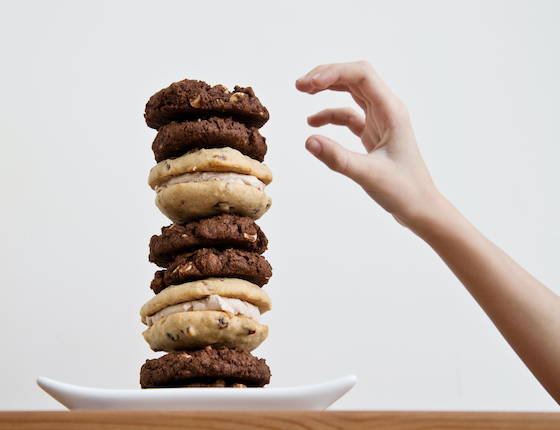8 Surprising Causes of Dehydration

Your body is roughly comprised of 60% water so it’s easy to see how vital it is to human survival. Every single cell in the human body needs water to function; however, we sometimes forget how important it is and let our bodies dip below the threshold of what constitutes healthy hydration. 75% of Americans are chronically dehydrated and losing just 2% of your body’s precious H2O – the level resulting in mild dehydration – can mean the difference between a good day and a trip to the hospital for I.V. drip treatment.
There are some very surprising causes of dehydration. Chances are that one of these is causing you to be dehydrated right now and you may not even know it.
8 Causes of Dehydration
- You drank too much alcohol. Having a glass of red wine has been shown to benefit heart health. However, one glass of red wine often leads to 5 or 6 and before you know it you are partying like it’s 1969. I have been known to overindulge on occasion and have suffered the consequences the next day. Drinking too much alcohol can result in the dreaded hangover. And who likes a hangover? But even consuming relatively small amounts of alcohol can cause dehydration. Alcohol suppresses your body’s antidiuretic hormone that sends fluid back into your body while simultaneously acting as a diuretic, causing water to be flushed out of your system much more rapidly than normal. Although it may be fun, alcohol consumption can cause some serious dehydration so be sure to replace all the water you lose next time you’re out on the town.
- You worked out. Working out is an incredibly healthy activity that has more benefits than you can count on two sweaty hands. Getting a good workout in is one of the key ingredients to maintaining a healthy lifestyle. An hour long run, bike ride, or lifting session in the gym can cause your body to lose a great deal of its precious water and vital electrolytes like sodium and potassium. Your muscles are made of 75% water and need it to function properly. When you lose it via sweat, you can be at risk of mild to dehydration. An easy rule of thumb is to drink 16 ounces of water for every pound you lose.
- You were up at high altitude. I grew up at high altitude in a rural town in Northern Nevada. As an athlete, I knew about the decreased oxygen levels in the atmosphere at high altitude and the beneficial implications of training there, but I never thought twice about the science behind it. When you go to high altitude, your body actually acclimates by speeding up your breathing and increasing urine output. These are both necessary adjustments for your body to make. However, constantly going to the bathroom and breathing harder – which forces you to exhale more water vapor – can cause dehydration. This winter when you head up to beautiful Aspen, CO for some skiing, be sure to take care of yourself in between runs down Ajax and rehydrate.
- You slept for 6 hours or more. Sleep is a key element of human survival. Our brains need rest in order to process and store thoughts from the previous day. Yet millions of people don’t get enough sleep and suffer the consequences. I am a huge advocate for getting plenty of zs and try to get as much shuteye as possible, even if that means taking a quick nap in the middle of the day. However, there is something about sleep that you probably didn’t know. While we are sleeping our bodies don’t receive any water. Going 6+ hours without any form of hydration causes dehydration. This is why you may wake up feeling parched in the middle of the night or first thing in the morning. Your body loses up to a pound of weight when you’re asleep, and the reason is pretty strange. You actually lose Carbon and vital H20 with every breath you take. So it’s important to replenish the lost water first thing in the morning. Drinking a glass of water right when you wake up is a perfect way to start your day and get back on track.
- You are on your period (ladies). That time of the month again? I can’t personally attest to this one, but there is a direct correlation between menstruation and dehydration. Estrogen and progesterone influence hydration levels in the body and when the two are fluctuating it can create serious problems. Another factor that leads to dehydration is the loss of actual blood, which depletes fluid levels. Replacing the lost water and electrolytes is especially important for women during this time of the month. Drink up, ladies!
- You are stressed. We all deal with stress on a daily basis. Some people are able to manage it better than others and keep their stress levels under control. For those of us stress-heads out there, managing our stress is much easier said than done. But surprisingly enough, keeping stress in check is crucial in order to maintain a healthy balance of hydration in our system. When you stress your body releases a stress hormone from your adrenal gland, which can exhaust the gland and result in adrenal insufficiency. The problem with this is that your adrenal gland is also responsible for regulating the level of your body’s fluids and electrolytes with the production of the aldosterone hormone. As the adrenal gland becomes more fatigued, it fails to produce aldosterone, resulting in dehydration. Moral of the story, try to stress less and drink more water.
- Aging. Growing old is a part of life. As much as we try to fight it with our anti-aging creams and rejuvenating spa therapies, aging is inevitable. As you get older, your body’s ability to conserve water and the sensation of thirst both decline. This combo makes it harder to know when you need more fluid and easier to become quickly dehydrated. As you age, it is imperative to be conscious of your fluid intake and be sure you are getting enough hydration on a daily basis, even when you don’t feel like you need it. Did you know about the important role that hydration plays in aging? Proper hydration is important for the protection of body tissue, healthy skin cells, and joint lubrication. It can make you both look and feel younger. You are going to grow old whether you like it or not, but you can do your best to fend it off with healthy hydration practices. Warning: Drinking too much water can actually be dangerous for the elderly so be cautious not to overindulge.
- Prescription Medications. I am personally not very knowledgeable on this subject, but my amateur research has led me to some intriguing discoveries. A long list of prescription meds acts as diuretics, increasing the amount of fluid your body excretes. One example of this is Adderall, a drug that is used to treat narcolepsy and ADHD. Not only is Adderall a diuretic, but it also inhibits the production of saliva in the mouth, which affects your body’s overall hydration. Be sure to check the side effects of your prescription meds next time and up your fluid intake if necessary.
Drinking fluids and replacing electrolytes, such as the ones found in Liquid I.V., serves a wide range of purposes in our bodies such as removing waste through urine; controlling body temperature, heart rate, and blood pressure; and maintaining a healthy metabolism. Without water, the body begins to shut down and you can start to feel the consequences of severe dehydration. Symptoms include dizziness, confusion, fatigue, anxiety, not being able to stay awake, fainting, rapid breathing, inability to stand or walk, and even loss of consciousness.





